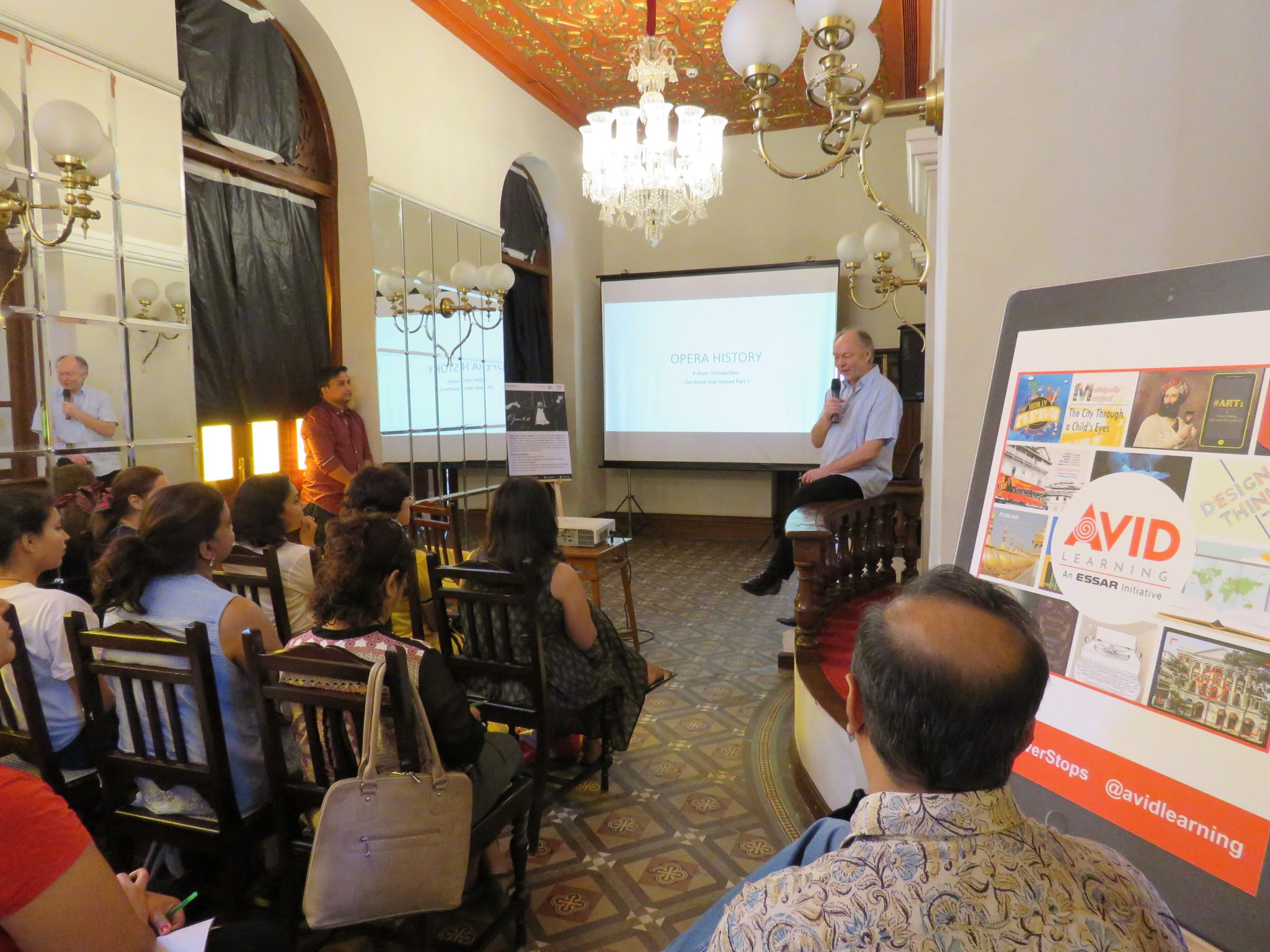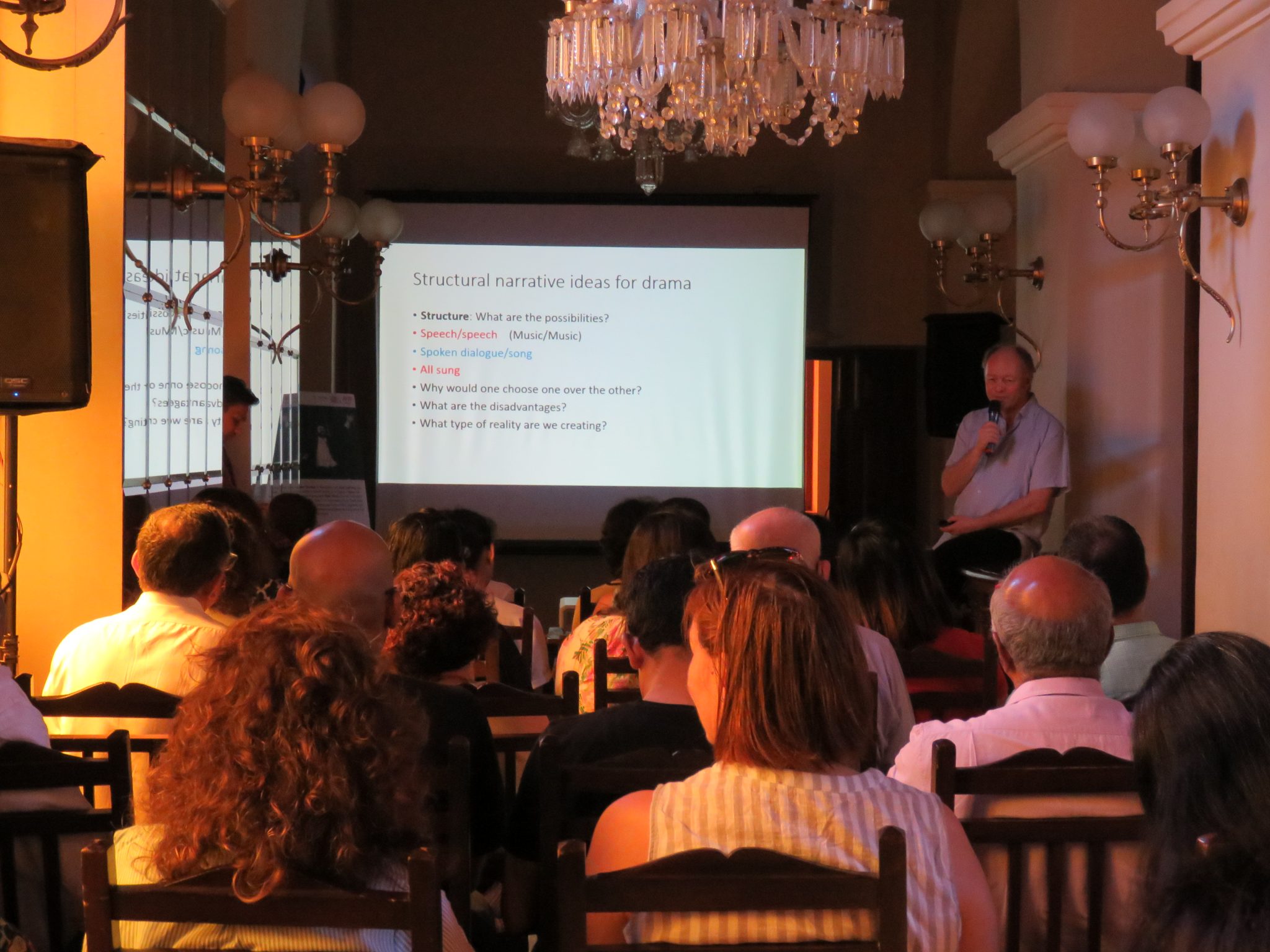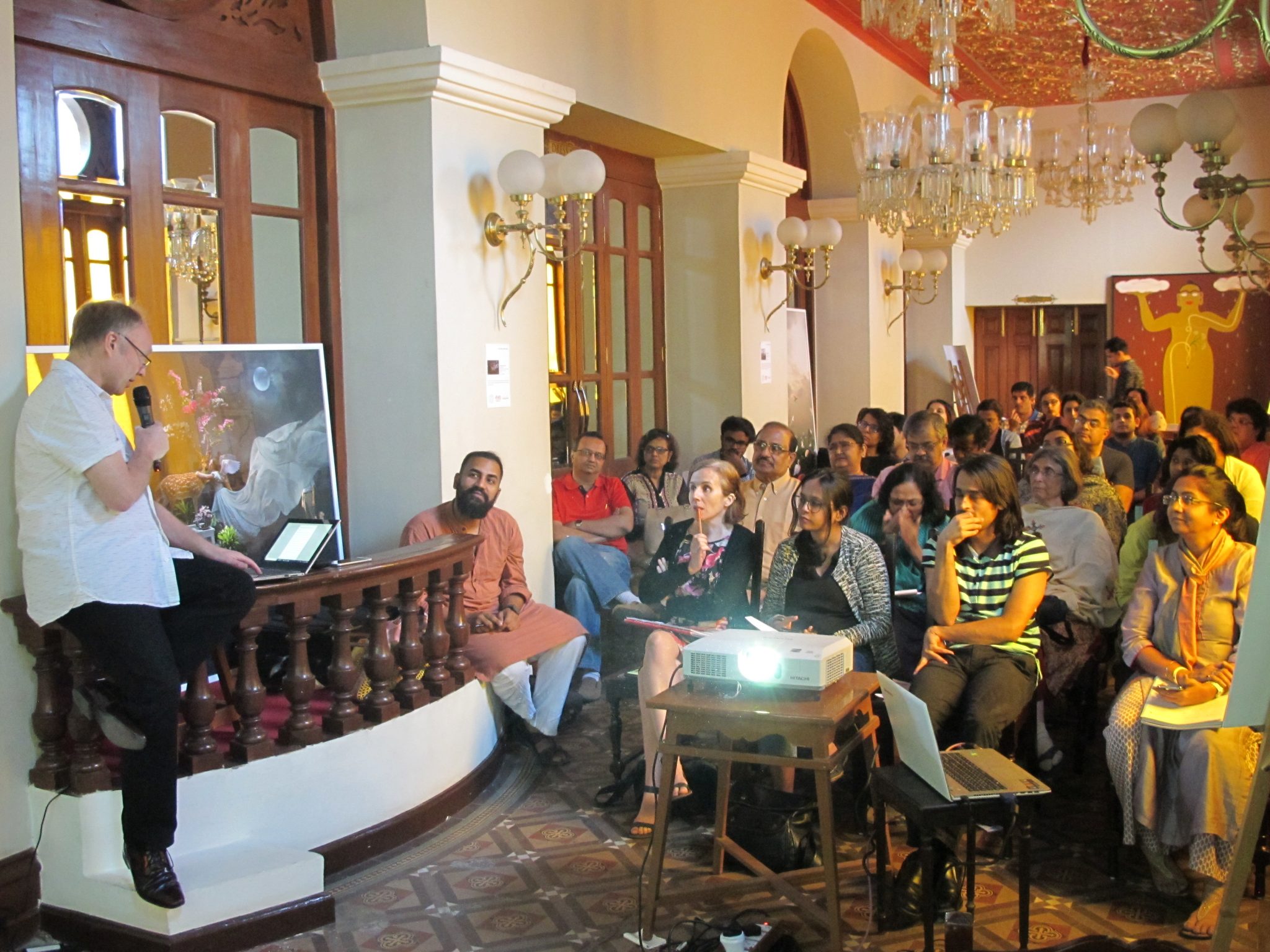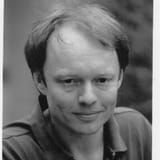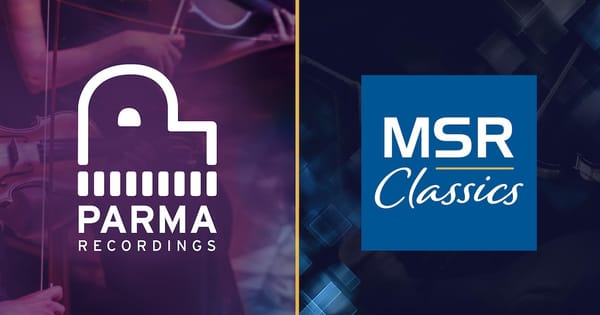Opera 101 – the joy of opera
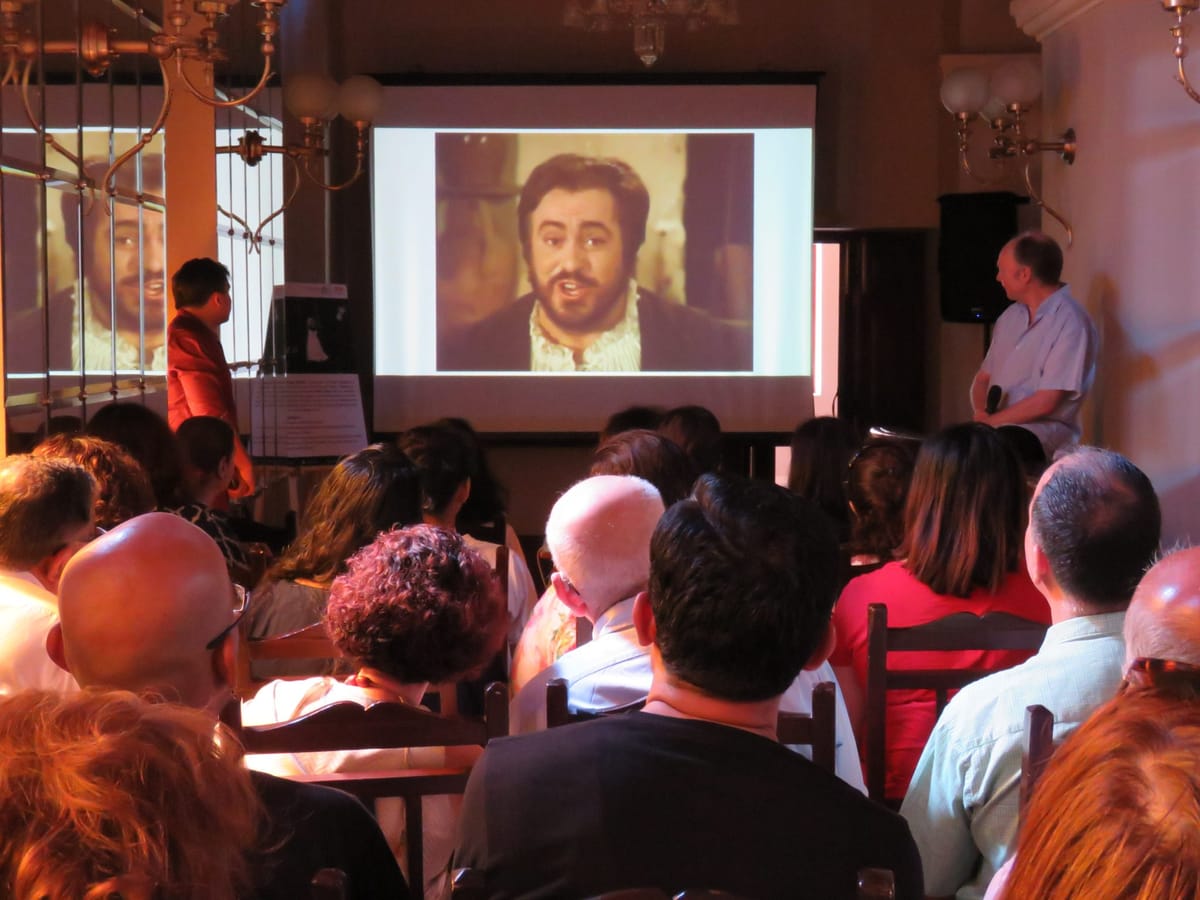
As we all now know, Mumbai has an opera house, and what better in an opera house than lectures on opera? Apart from operas themselves, naturally. Well, hopefully, interest created by the one will lead to passion for the other.
Some months ago, Royal Opera House impresario, Asad Lalljee, asked me to do some lectures on opera for Avid Learning.
I asked, ‘In the Opera House?’. He said, dramatically, ‘Where else?’
‘Onstage?’ ‘It would only be right’. ‘With a piano?’ ‘If you must’
‘Can I bully them to sing?’ ‘What else, in an opera house?’
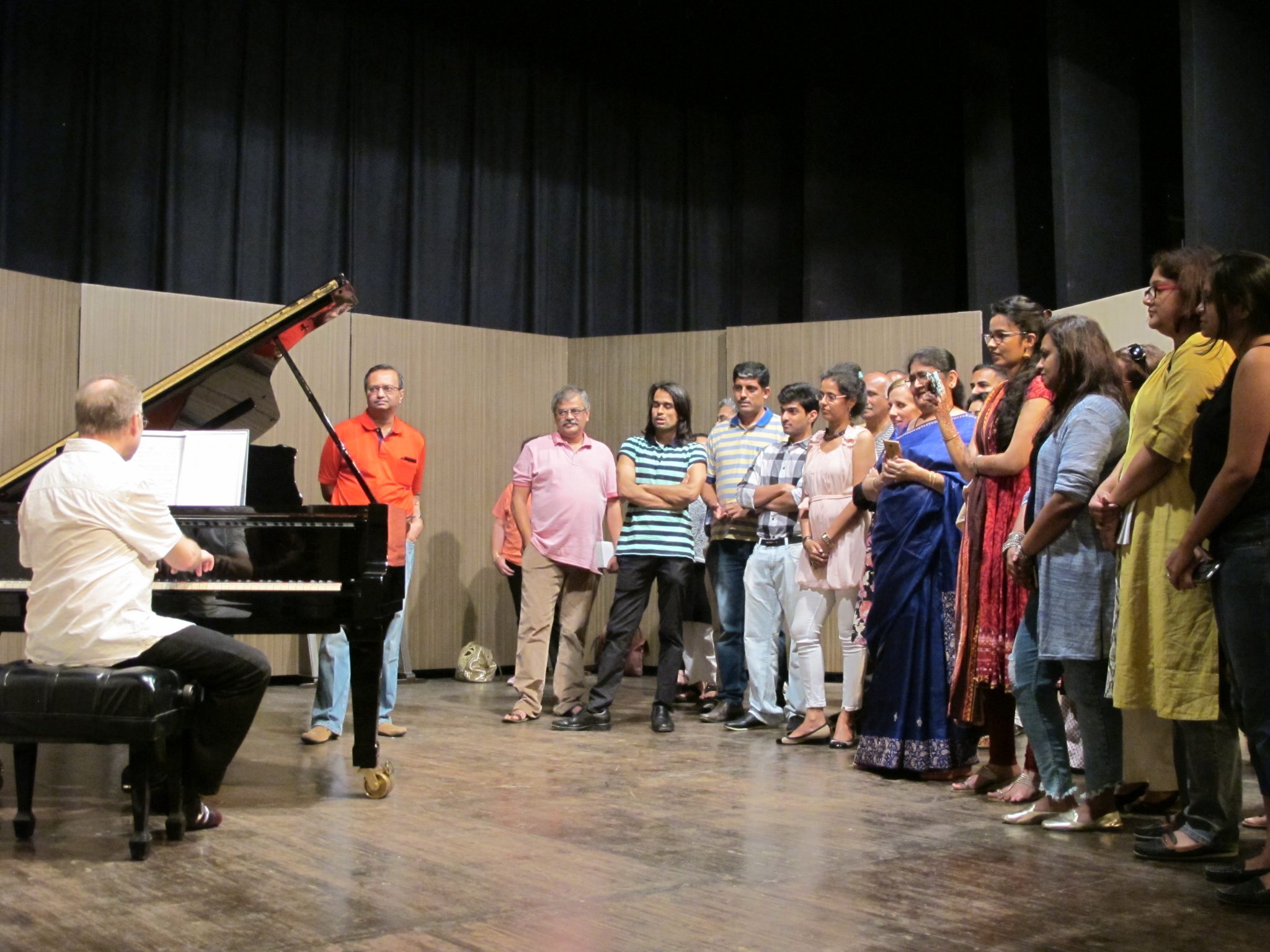
And we were engaged to sell opera to the public.
My idea was that some would know a lot, and some very little, so I designed a full spectrum experience – history, opera lore, recordings galore; but the admin team pointed out, that in a workshop, the students actually have to do something not sit there like zombies. So, trepidatiously, I added European languages, singing, and (pushing the operatic boat far out to sea…) functional harmony.
So far, so good, you may think. But though opera may be as culturally normative as, well, the Eiffel Tower, or fish and chips, what actually is it? When is an opera in fact a musical, say?
Opera just means ‘work’ in Italian. (Not much help!) This Italian ‘work’ developed into emotionally satisfying plots of arresting majesty, delivered by singers of ample girth, and not just in Italian – French, Germans, Brits and even Chinese all do it too.
To give my students the flavour of all this they had to learn basic Italian (open and easy), German (surprisingly open, but oh! those consonants), and French – a very closed language that even the French don’t sing. Wonderfully, they became a choir and sang the Prisoners’ Chorus, some Schubert, and – their pièce de résistance – Mozart’s Magic Flute, accompanying the great (but quite definitely deceased) Gottlob Frick from 1954. Such is the wonder of the recorded legacy.
We found that music unleashes the emotions in a way that straight drama cannot – the music creates a complementary structure for the emotion that builds with the drama, and the best opera composers (Monteverdi, Mozart, Gluck, Verdi, Wagner) understood how best to do that.
We learnt how clever singers have to be to cope with the demands of the business – and, no, it wasn’t just the demands of their outsize physiques and diets that we examined! (Anyhow, singers these days look like models – too much flab and you won’t get the work!) Singing in at least 5 languages, memorising large tracts of opera material, producing enough sound to out-blast an orchestra (no mikes, mind you), and, of all things – acting! It’s no longer the school of ‘stand and deliver’!
Most appropriately of all, we had the opportunity to try out the opera house first hand. Initially as audience, sitting in the wonderfully restored auditorium, and then on stage itself, singing our Magic Fluted hearts out and feeling like real opera divas.
